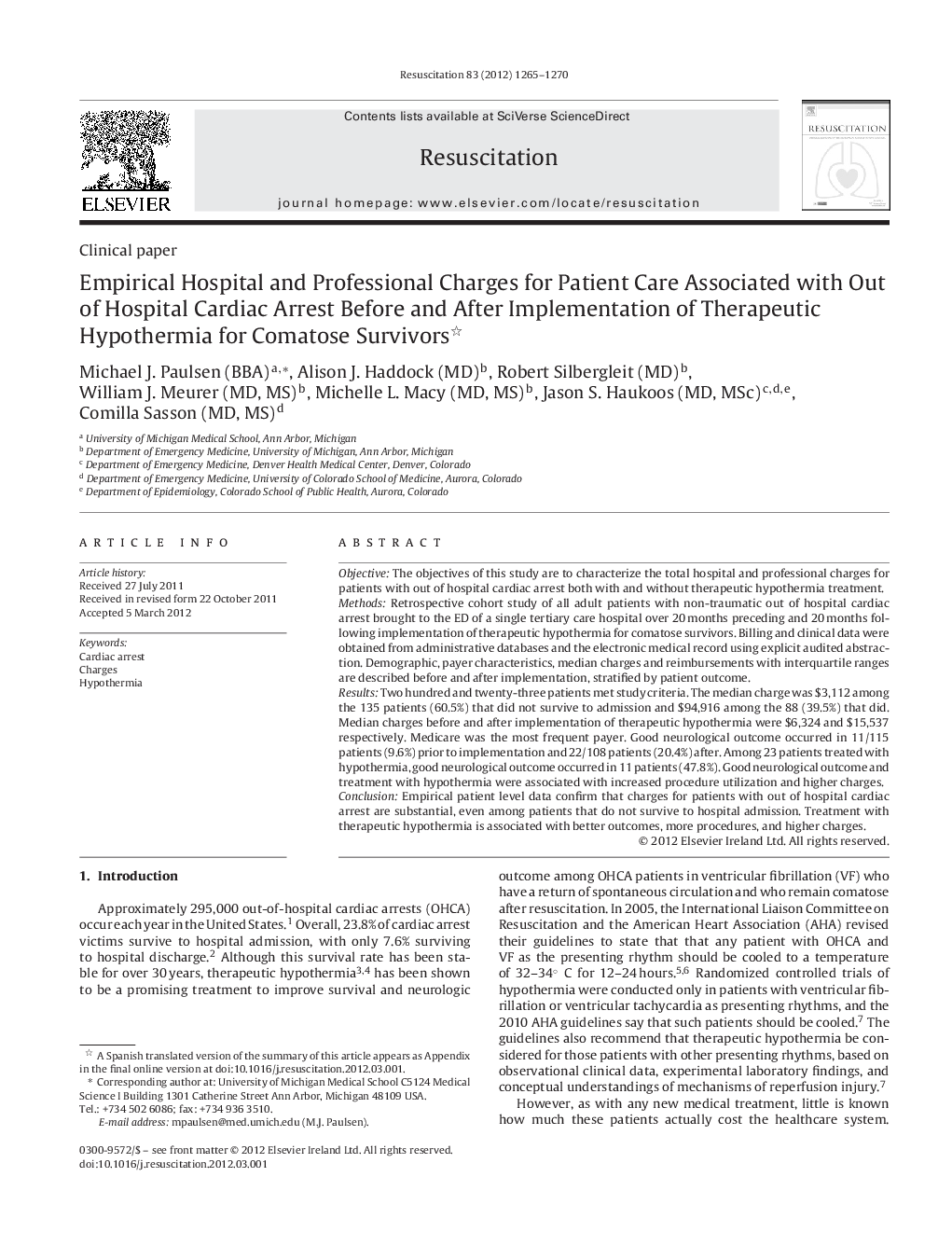| Article ID | Journal | Published Year | Pages | File Type |
|---|---|---|---|---|
| 3008916 | Resuscitation | 2012 | 6 Pages |
ObjectiveThe objectives of this study are to characterize the total hospital and professional charges for patients with out of hospital cardiac arrest both with and without therapeutic hypothermia treatment.MethodsRetrospective cohort study of all adult patients with non-traumatic out of hospital cardiac arrest brought to the ED of a single tertiary care hospital over 20 months preceding and 20 months following implementation of therapeutic hypothermia for comatose survivors. Billing and clinical data were obtained from administrative databases and the electronic medical record using explicit audited abstraction. Demographic, payer characteristics, median charges and reimbursements with interquartile ranges are described before and after implementation, stratified by patient outcome.ResultsTwo hundred and twenty-three patients met study criteria. The median charge was $3,112 among the 135 patients (60.5%) that did not survive to admission and $94,916 among the 88 (39.5%) that did. Median charges before and after implementation of therapeutic hypothermia were $6,324 and $15,537 respectively. Medicare was the most frequent payer. Good neurological outcome occurred in 11/115 patients (9.6%) prior to implementation and 22/108 patients (20.4%) after. Among 23 patients treated with hypothermia, good neurological outcome occurred in 11 patients (47.8%). Good neurological outcome and treatment with hypothermia were associated with increased procedure utilization and higher charges.ConclusionEmpirical patient level data confirm that charges for patients with out of hospital cardiac arrest are substantial, even among patients that do not survive to hospital admission. Treatment with therapeutic hypothermia is associated with better outcomes, more procedures, and higher charges.
